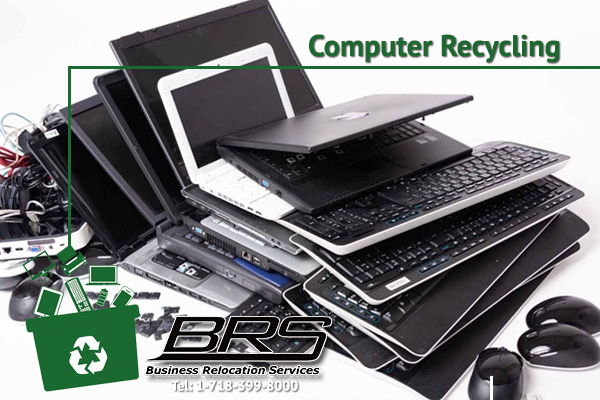Changing E-Waste: Computer Recycling Done Right
Changing E-Waste: Computer Recycling Done Right
Blog Article
Lasting IT Solutions: Trustworthy Computer System Recycling Services
In light of this, the demand for reliable computer system reusing services has never been even more critical. In this discussion, we will explore the ecological influence of e-waste, the advantages of liable computer recycling, how to select a credible recycling service, the reusing process for computers and electronic tools, and the function of government regulations in e-waste monitoring.
The Ecological Impact of E-Waste
The improper disposal of digital waste, frequently known as e-waste, has considerable environmental effects. E-waste describes thrown out electronic tools such as computer systems, televisions, and mobile phones (computer recycling). These devices have harmful products such as lead, mercury, cadmium, and brominated flame resistants, which can be dangerous to both human health and the atmosphere if not appropriately managed
When e-waste is incorrectly thrown away, it frequently winds up in landfills or is incinerated, launching toxic compounds right into the soil, air, and water. The launch of these hazardous materials can pollute groundwater, contaminate the air, and add to soil destruction, positioning significant health dangers to neighboring areas and communities.
Furthermore, the incorrect disposal of e-waste additionally adds to the depletion of all-natural sources. computer recycling. If effectively reused, numerous electronic gadgets consist of beneficial metals like gold, silver, and copper that can be recouped and recycled. Nonetheless, when e-waste is not reused, these useful sources are shed, and the need for new resources boosts, resulting in boosted mining activities and further environmental degradation.
To mitigate the environmental impact of e-waste, proper recycling and disposal methods have to be employed. This consists of the liable collection, taking apart, and recycling of electronic devices to recoup beneficial materials and guarantee the safe management of unsafe substances. Executing effective e-waste monitoring practices is essential to protect the setting, save sources, and advertise a lasting future.

Benefits of Responsible Computer System Recycling
Appropriately recycling computers provides a wide range of advantages, consisting of environmental preservation and resource preservation. Accountable computer reusing not just assists prevent digital waste from finishing up in landfills, yet it likewise lowers the requirement for basic materials and power in the manufacturing of new tools.
Among the most significant advantages of responsible computer system recycling is the conservation of the atmosphere. When digital waste is improperly dealt with, it can release harmful compounds such as lead, mercury, and cadmium right into the dirt and water, positioning a threat to ecological communities and human wellness. By recycling computer systems, these hazardous products can be safely drawn out and gotten rid of, minimizing the threat of pollution.
One more benefit is resource conservation. Computer systems have beneficial products like gold, copper, silver, and light weight aluminum, which can be recuperated and recycled with recycling processes. By drawing out and reusing these products, the need for extracting new sources is lowered, saving all-natural sources and lowering the environmental effect of source removal.
Moreover, accountable computer recycling assists to reduce energy usage. Production brand-new computers needs a substantial amount of energy, from the extraction of basic materials to the setting up process. By reusing computers and recycling their components, the energy-intensive production procedure can be avoided, bring about a reduction in greenhouse gas emissions and a much more lasting use of power resources.
How to Choose a Trustworthy Computer Recycling Service
When selecting a computer system reusing solution, it is necessary to think about a couple of vital factors to ensure that you choose a trustworthy and reputable copyright. To start with, it is critical to validate if the recycling service adheres to correct environmental policies and practices. A reliable service provider will have qualifications and certifications that demonstrate their dedication to liable recycling. Try to find certifications such as R2 (Liable Recycling) or e-Stewards, which ensure that the reusing process meets stringent requirements for ecological protection and information safety and security. Second of all, inspect if the solution uses secure data devastation. Information safety is an essential worry when reusing computers, as delicate info saved on old gadgets can be at risk to burglary or misuse. A trustworthy recycling service should have safe information damage procedures in position, such as data wiping or physical devastation of storage space devices. In addition, take into consideration the service's record and reputation. Try to find testimonials or testimonies from previous consumers to gauge their degree of customer contentment and reliability. Think about the service's openness and liability. A reliable service provider needs to be able to provide comprehensive information regarding their reusing procedure, consisting of how they take care of hazardous materials and ensure correct disposal. By considering these elements, you can choose a computer reusing service that is moral, trustworthy, and eco liable.
The Recycling Process for Computer Systems and Digital Instruments
To make sure liable disposal and lessen ecological impact, recognizing the recycling procedure for computer systems and electronic tools is crucial when selecting a reliable recycling solution. The recycling process for these tools normally involves numerous stages.
Firstly, the tools are gathered from individuals, companies, or drop-off points. This collection process may involve transport logistics and protected handling to protect the delicate information included within the gadgets. When accumulated, the gadgets are arranged based on their kind, such as mobile phones, desktops, or laptop computers.
After sorting, the gadgets undertake an extensive information damage process to make certain that any kind of delicate or individual info is completely erased. This check my site step is vital to shield the privacy and safety and security of people and companies. Data damage approaches might include wiping, degaussing, or physical damage of the storage space media.
Next, the tools are dismantled into their individual components. This permits the separation of different materials, such as plastics, metals, and circuit card. These products are then sent out to specialized reusing centers for more handling.
The recycling centers use various strategies to extract important materials from the electronic waste. These materials can be reused or repurposed in the manufacturing of new products. The continuing to be waste is thrown away in an eco liable way, sticking to regulative guidelines.
The Function of Federal Government Laws in E-Waste Administration
Government regulations play an important duty in the efficient administration of e-waste. With the continuous growth of the electronics sector and the boosting worry for environmental sustainability, the need for proper disposal and recycling of digital waste has actually ended up being extra apparent. Federal government regulations assist to make sure that e-waste is taken care of in a sustainable and liable manner.
One of the key functions of government guidelines is to set standards and standards for e-waste administration. These laws specify the proper approaches for collection, transport, and recycling of digital waste. By establishing these standards, federal governments can make certain that e-waste is taken care of in a method that minimizes its influence on the setting and human health and wellness.
Government laws likewise play a vital function in applying the appropriate disposal of digital waste. They call for merchants and manufacturers to take obligation for the products they generate and sell. This consists of executing take-back programs, where manufacturers are in charge of gathering and reusing electronic waste from customers. These guidelines help to move the burden of e-waste monitoring from the private customer to the sector, guaranteeing that digital waste is taken care of in a more sustainable way.

Conclusion
To conclude, it is critical to consider the environmental impact of e-waste and select a trustworthy computer system recycling service pop over to these guys to sensibly take care of digital gadgets. By complying with government guidelines and engaging in correct recycling procedures, we can mitigate the adverse effects of e-waste on the atmosphere and promote a more sustainable future.
In this conversation, we will certainly explore the ecological effect of e-waste, the benefits of responsible computer recycling, just how to select a credible recycling solution, the recycling procedure for computer systems and digital gadgets, and the function of government policies in e-waste administration. Computer systems include valuable products like gold, copper, silver, and aluminum, which can be recuperated and reused with reusing processes.Additionally, accountable computer system reusing aids to lower power intake. Information security is an essential problem when recycling computer systems, as sensitive info saved on old gadgets can be susceptible to theft or abuse. By thinking about these factors, you can select a computer system reusing service that is moral, trustworthy, and environmentally responsible.
Report this page